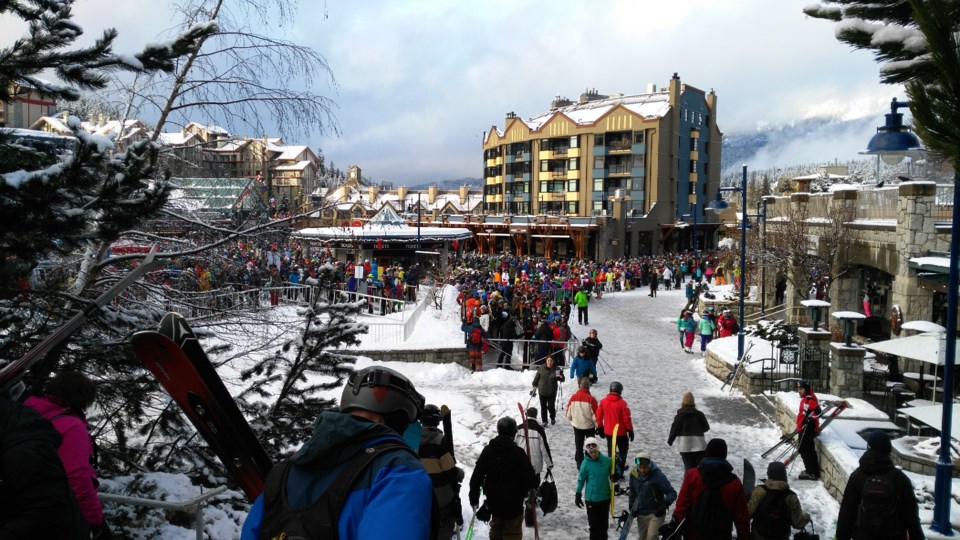Christopher Nicolson compares ski resort operators to farmers: both are eternal optimists. The President/CEO of the Kelowna-based Canada West Ski Areas Association makes the comment amid warning signals that the winter ahead could bring new challenges for British Columbia’s ski industry.
“As an overall comment, if you have a market share that comes from overseas, you’ll definitely be watching the situation closely,” says Nicolson in response to a recent Tourism Whistler (TW) outlook, predicting a slight decline in overnight bookings, due in large part to a nervous global economy.
“One of the key metrics for the industry are skier visits,” says Nicolson.
For the past two seasons, the all-important skier count was around 6.8 million across the west – making that the new benchmark. TW’s vice-president of destination and market development Karen Goodwin recently admitted to Pique Newsmagazine she’s concerned about the international impact and tensions from Brexit and the US-China trade feud, but Nicolson is more confident:
“History has shown that if people are not travelling from overseas to North America, in general, people from North America probably aren’t travelling overseas either.”
While the farmer in Nicolson argues that skiing is usually resilient to economic swings, he does acknowledge the risks ahead.
“Any uncertainty in the economic environment is going to have an impact,” says Nicolson, who predicts a shift in the ski market. While international skiers coming to B.C. are primarily from the U.S., the U.K., Germany, Australia and New Zealand, most visitors are local, or from other parts of Canada.
Nicolson says the current state of the industry is “robust,” as ski hills employ approximately 30,000 workers through the winter, from entry level jobs to senior executives. He also points to investor confidence as another key economic indicator; during the 2018-2019 ski season, resort owners spent $100 million on maintenance and upgrades.
“Currently what I’m detecting following a series of recent meetings in B.C. and Alberta is a high level of optimism,” says Nicolson, asked about a report that Whistler’s visitor numbers have plateaued after some five years of growth. Whistler’s overnight bookings this past summer were reportedly down 2% below the same period of 2018.
Uncertain whether ski visits will increase this winter after holding steady for the past two seasons, Nicolson points out it took several years for the industry to recover from the 2008 economic downturn.
“It’s been a long climb back.”
Asked about the current state of the B.C. ski industry, the “farmer on skis” answers without a split second of hesitation: cautiously optimistic.
Several B.C. ski resorts have announced tentative opening dates:
Apex Mountain: December 7
Big White: Late November
Fernie: November 30
Kicking Horse: December 6
Kimberley: December 14
Mt. Washington: December 6
Manning Park: December 7
Powder King: November 21
Panorama: December 6
Revelstoke Mountain Resort: November 30
Red Mountain Resort: December 12
Sun Peaks: November 23
SilverStar: November 28
Whistler Blackcomb: November 28
Whitewater: December 6
As always, I welcome your comments and criticism on Twitter @kammornanchor and email [email protected].
Bob Price is a veteran B.C. broadcaster who anchored the morning news on CHNL radio in Kamloops for the past 30 years. Bob is also a past Webster Award winner whose previous stops included Vancouver and Calgary.
SWIM ON:
- Don't miss Bob's last piece, on suicide and the aftermath for the families affected by it. It's not an easy read, but it's an important story, and one worth telling.
- Former Road Builders president Jack Davidson on the right policy framework for building a healthy construction industry.
- Robert McGarvey wonders why Canadians can't - or won't - invest in their own country.



